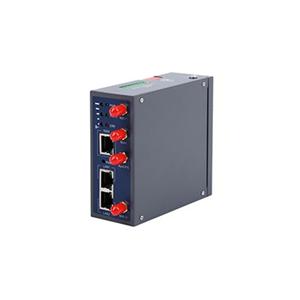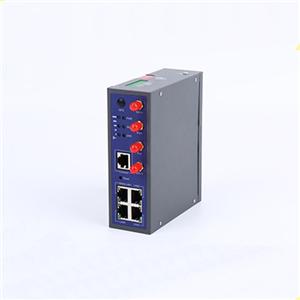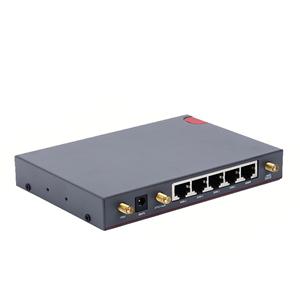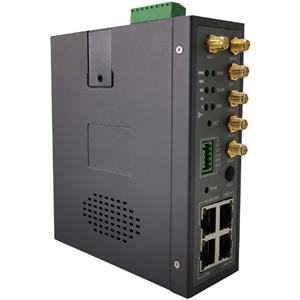Are you ready for 5G?
Are you ready for 5G?
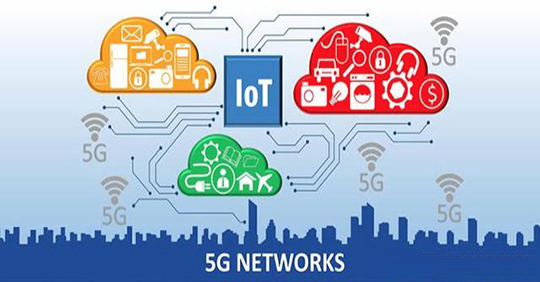
First, from concept to formal commercial use
5g is a hot word, and any passerby on the street will tell you that 5g is coming, the trend is inevitable! But what changes can 5g bring to life? People are often aggressive about this issue.
"It should be faster. Watching a movie is not a card. The next moment?" This is the most common answer.
It is 100-250 times faster than 4g network, with a response delay of less than 1 millisecond, larger processing capacity, and can handle multiple devices at the same time. It is great to watch 4k and 8k videos ... yes, these expressions are correct. But what can 5g bring, is it just a "quantity increase" in the technical parameter level?
In fact, the popularity of communication networks has never been achieved overnight. In 2013, the country issued a 4g license, but after two years, less than 30% of the users of 4g mobile phones, and only 70% today.
What are the constraints? The answer is product and scenario.
Around 2009, the author happened to be at China Telecom, the earliest to push 3G mobile phones. The most common objections of users at the time were:
"Why is my mobile phone so fast?" "There is so much traffic that I can't use it at all." "My 2g mobile phone can also access the Internet. You can watch QQ on mobile Monternet."
Now you definitely understand that at that time, people were still using feature phones. The killer terminal of the 3G era, the smart phone, had not surfaced yet. 3G is a pure concept. After all, 3g runs on a feature machine and the experience is the same as shit, of course, network speed and traffic are useless.
When smart phones appeared, large-scale app ecosystems came together, and the social, location, and payment infrastructure closed loop ... For the first time, the high-speed experience of the mobile Internet became a real thing. People turn on their phones in various fragmented scenes, so they can't do without it.
At first, people were resisting. Once the product and scene appear, it can only be "true fragrance".
It's like what Henry Ford said, never ask the user about his needs, you ask him what he needs, he will say he wants a faster horse, he doesn't know there will be a car.
So, is 5g just a "faster horse" or a "car"? When 5g is commercially available, this question will be answered by the "killer application" that comes with it.
Second, the killer application
With each generation of communication networks, the most sought-after businessmen must be killer applications.
For 2g, the killer app is SMS.
For 3g, the killer application is an app ecosystem based on smart phones.
For 4g, the killer application is the video era brought by live broadcast and short video.
What about 5g? To find this killer, we must first understand a question: where are the advantages of 5g ultra-high speed, ultra-low latency, and high throughput?
For example, the advantage of 4k video often said is obviously meaningless on today's smart phones. For a 6-inch smart phone, can you see the advantages of 4k over 1080p?
Ultra-high network performance must be "excessive efficiency" when placed on the wrong product.
Let's try to make some assumptions:
First, the network speed is very high, and the data that can be transmitted should have more imagination, such as 3d data, sensor data, and artificial intelligence data.
Secondly, it can transmit 4k and 8k video, which is useless on the traditional mobile phone screen. So what if you watch it on other terminals such as VR?
Third, high-throughput, isn't it too curly to handle only one terminal of a smartphone?
With that said, a bold assumption has surfaced: the arrival of the 5g era, the first one to rise is likely to be "cloud networking", and the 5g network is the cloud network first.
In the era of cloud networking, all data storage and calculations are placed in the cloud, and the local terminal is just a "display screen", which uses the ultra-high-speed network to obtain content in real time from the cloud and interact with it in real time.
In the final analysis, all problems are "economic" problems. The first big dividend brought by cloud networking is the "slump in costs." Regardless of computer, mobile phone, VR, you no longer need ultra-high-performance CPUs, graphics cards, hard disks, hardware ... because everything is in the cloud, it can be customized and customized on demand.
In fact, this has actually been the initial case, and the cloud game that has become the hot word of the year with 5g has begun to reflect the "cost reduction" bonus. Whether it is a foreign shadow, vortex cloud gaming platform or a domestic Dalong cloud computer, palm Internet cafe, Huawei cloud computer and the recent Tencent start, they are trying to ignite a "cheap" storm among players, without the need for high-end computers. You can play top games with internet connection.
Maybe you would say, isn't this cloud computing? It's not a new concept. That's right, cloud computing has been a buzzword since 2006. But in the past, the cloud was more a storage center than a performance center. Now all the performance and computing power must be put.
Don't underestimate this, it could be a huge disruption. The era of cloud networking will bring brand-new business logic. Users get "display terminals" at prices as low as almost free of charge, and everything else is left to the cloud. Merchants adhering to this logic will provide traditional merchants that emphasize high performance such as Alien, Apple).
Change and change
The idea of using a pc is definitely not good for mobile internet, and the mentality of using software is definitely not good for app. When cloud networking emerges, past products and commercialization ideas may have to be overturned.
Are the new generation of entrepreneurs and product managers still holding their old calendars, just as Microsoft engineers cannot understand the interaction logic of smart phones? The only thing waiting for you is elimination.
The previous two days of the WeChat annual conference, Zhang Xiaolong's various quotations continued to swipe the screen. But maybe, just as Bill Gates can't make a smart phone, and just as Jobs may not be able to afford a social network, there will be a "new era of Zhang Xiaolong" in the new era.
I dare not say how future products learn to evolve, but at least a few changes are obvious.
The first change of mind is that the lighter local end.
In the past few years, the most common entrepreneurial idea is: I want to make an app, but it should not be too heavy, it will occupy the user's mobile phone space.
But cloud networking is here. Cloud apps and applets don't take up much space on the local end. The main performance is on the cloud because the network speed is too fast and the latency is too low. The experience is no different from today's local apps.
This is unthinkable at the moment. The network speed is too slow, and the applet must be very light and light. Otherwise, "networking and buffering" can suddenly kill users. What experience is there?
The second change in thinking is a richer terminal.
Don't just think about the phone screen, see more terminals. From traditional TV computers, to the emerging vrar glasses, to furniture and industry sensing equipment in the sense of the Internet of Things, more possibilities may begin to appear.
No matter how the terminal changes, what remains unchanged is human nature, which is people's ultimate pursuit of efficiency: lower costs and higher returns.
What is this in the cloud networking: cheaper terminals, more powerful experience.
Take gaming as an example. Today's mobile phones can only run games with general performance, and real hard-core high-quality masterpieces often require tens of thousands of terminals such as alien computers. If cloud games start to become popular, you do n’t need a lot of powerful terminals, you can just like Google stadia, Dalong
Cloud computers, cloud Internet cafes, pocket Internet cafes, Tencent start to play masterpieces in the cloud, what kind of changes will this be?
The third change in thinking is a more powerful middle stage.
In the 5g multi-terminal scenario, the terminals will cooperate with each other to form a system. Just like today's Google's smart home appliance system, data sharing and intelligent linkage will be performed, so each terminal can perform deep learning and intelligent analysis on users, and return to the common " In the "Central Taiwan" block, you are getting smarter and more understanding of you.
Outbreak scene
Next, let us further imagine: what scenarios might cloud networking begin to explode at the beginning?
Regarding this question, returning to the "extreme pursuit of efficiency of human nature", we only need to answer: In which areas are people very sensitive to the cost of the terminal, and at the same time require ultra-high performance far beyond 4g?
One is sinking the market.
In the past, we said that home appliances went to the countryside, then we said that computers went to the countryside, and then the popularity of smartphones made the sunken market crowds outside the Fifth Ring Road all netizens. Now, the advent of 5g cloud networking will mean "going to the countryside with high-performance terminals."
The drop in terminal prices will bring huge dividends. Whether it is an industry application with high performance requirements, office experience, or high-end games, the threshold has begun to disappear, and the sinking market crowd will usher in a cheaper and better age.
The second is industry synergy.
This is a b-side scenario, such as cloud rendering with extremely high performance requirements, such as artificial intelligence applications based on massive data processing calculations, such as cloud office, and the "web version" launched by Dalong Cloud Computer. Click the web link on the Apple computer You can also directly use the cloud computer of the win system to achieve dual system operation.
The third is high-end entertainment.
Excellent live streaming and games, VR immersive and clear experience, these can be achieved. After all, historically, games and pornography have often been the core of the rapid promotion of online applications and market education.
Microsoft, Google, Tencent, Huawei, and communications operators have all begun to enter the cloud game, and startups such as Dalong Cloud Computer have accumulated millions of cloud game users ... So what next?
Looking back at the development of the mobile Internet, efficiency tools, games, social networking, local business, and video entertainment have exploded. So in the era of 5g cloud networking, there may be two lines, one line is the cloud industry application on the b side, and the other line is the cloud entertainment experience on the c side.
Of course, we cannot be too optimistic about technology. If all computing power and experience are placed in the cloud, the requirements for backbone bandwidth will be "super", and the consumption of center costs may also be unprecedented. At present, there is no major company. Give a very complete plan. A common idea is to share computing power with edge computing devices.
Five, 5g first battle
Some time ago, the long-known Google cloud game platform stadia was finally launched, but the results were not amazing, and people looking forward to it were disappointed.
In fact, stadia's problem is exactly the same as the cloud game platform onlive that year: the appetite of the public is too high and the expectations are too strong, but the actual launch is only a semi-finished product, the technology is immature, the content has shortcomings, and there are only a few games. It also bills separately, at the same time over-promotion, and mainly aimed at fault-finding hard-core high-end players, of course, can only gain bad reviews.
However, this "gorgeous failure" is just the beginning. Stadia itself will upgrade iteratively. Small setbacks are unlikely to stop the wave of cloud games. We can see several clear trends:
First, technology is maturing. The enhanced game broadband scene (embb) solves the problem of high-definition game high-definition transmission; large-scale scenes are connected to mMTC to achieve the interconnection of multiple game carriers. Low-latency high-reliability scenarios (uRLLC) will comprehensively improve the user's experience with latency. It is no exaggeration to say that everything is available, only 5g.
The second is the influx of capital. According to statistics from the Tencent Research Institute, at least 152 companies worldwide have entered the cloud game, of which 83 have received financing, with an investment rate of about 54.6% and a total of 1.348 billion US dollars.
The third is the layout of giants. Facebook acquired Spanish cloud game company playgiga, and wanted to work with Oculus' VR strategy. Amazon announced the launch of cloud gaming services and integration with the twitch live streaming platform. Tencent and Nvidia cooperated to launch the start cloud game service, and the basic hardware chips that restrict performance will usher in a leap. At the same time, the NetEase cloud game beta platform was launched. Huawei Cloud launched the “Exclusive Guangdong” plan at the end of the year to promote cloud games with special package benefits and support policies.
Fourth, the policy is favorable. At the end of last year, the China Internet Association and the Telecommunications Terminal Industry Association jointly launched the establishment of 5g cloud gaming industry alliances. Tencent, Huawei, Douyu, Dalong and other 28 representative companies joined them, unified industry standards, and released a white paper. Beijing and Shanghai have successively launched heavy policies around the development of the game industry, creating an e-sports capital or an international online game capital.
Fifth, the market is heating up. The "2019 China Game Industry Annual Report" shows that the export revenue of China's game market and overseas markets will exceed 310 billion yuan in 2019, a growth rate of 10.6%, and the entire industry is accelerating. Based on the performance of 16 global cloud game companies, ihs markit concludes that the global cloud game market will exceed $ 500 million in 2019 and is expected to reach $ 2.5 billion in 2023.
All signs point in one direction. Cloud gaming is becoming the first battlefield for 5g landing. With the official landing of 5g network, the first wave of small-scale battles is likely to erupt in the first half of 2020. The true large-scale battle will reach the next three years. To the point of heating up.
"You are greedy when others are scared." Anyone can say this beautiful phrase, and ask you if you are ready this time?

